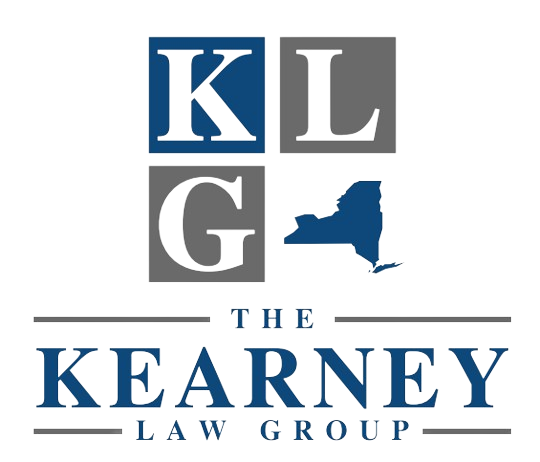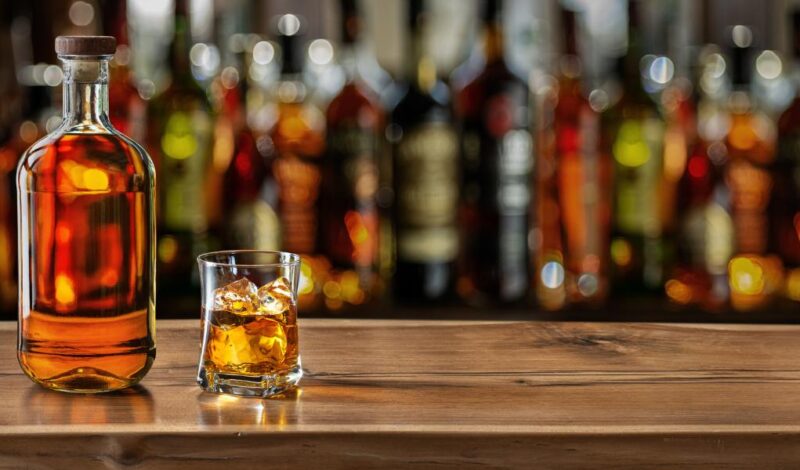If you own a bar or restaurant in New York, you probably already know there are a lot of rules around serving alcohol. But one law that often catches business owners off guard is dram shop law.
This law can hold your business responsible if you serve alcohol to someone who’s already drunk or underage, and they go on to hurt someone or cause damage. It doesn’t matter if the incident happens inside your business or hours later. If you served the alcohol, your business could be on the hook.
Let’s take a closer look at what dram shop law is, what it means for your business, and how you can avoid a costly lawsuit.
What Is Dram Shop Law?
Dram shop law refers to the legal rules that hold alcohol-serving businesses, like bars, restaurants, and event venues, responsible if they serve someone who later causes harm while intoxicated. In New York, this law is more than just a warning; it’s written into the state’s civil code and can lead to serious financial consequences if not followed.
The term “dram shop” comes from 18th-century England, where taverns sold gin by the dram, a small unit of measure. Today, the phrase lives on in laws that deal with how alcohol is sold and the liability that comes with it.
The Basics of New York’s Dram Shop Law
In New York, dram shop liability is covered under General Obligations Law §11-101. It states that a business can be sued by a third party if:
- Alcohol was unlawfully provided (to someone under 21 or visibly intoxicated)
- That person caused injury, death, or property damage
- The alcohol served was a contributing factor to the incident
This means that your business could be pulled into a lawsuit, even if the incident happened after the customer left your premises.
What Counts as “Unlawful” Alcohol Service?
There are two main situations where alcohol service becomes illegal in New York:
- Serving Minors – It is always unlawful to serve alcohol to anyone under the age of 21, even if they have fake identification.
- Serving Visibly Intoxicated Individuals – If someone is showing clear signs of intoxication, such as slurred speech, glassy eyes, or trouble standing, and your staff continues to serve them, that may be considered negligent under dram shop law.
The standard isn’t whether someone was legally drunk but whether a “reasonable person” would have recognized the signs and stopped serving.
Real-World Example
Imagine a man visits your bar and drinks several cocktails quickly. His speech becomes slurred, he stumbles on the way to the restroom, and other patrons take notice. If your bartender continues to serve him despite these visible signs of intoxication, and the man later causes a car accident, your business could face a dram shop lawsuit from the injured party. Even though you didn’t cause the crash, the law sees your business’s actions as a contributing factor.
Who Can File a Dram Shop Claim?
One important thing to understand is that dram shop claims are often brought by third parties, not the person who was served. This might include:
- A driver injured in a crash caused by an intoxicated customer
- A pedestrian or cyclist hit by a drunk driver
- A family member filing a wrongful death claim
- A victim of an alcohol-fueled assault or altercation
In these cases, the lawsuit isn’t just about what happened inside your business, it’s about the chain of events that followed.
Dram Shop Law vs. Criminal Charges
Dram shop law is a civil statute, not a criminal one. That means you’re not at risk of jail time, but you are at risk of being sued and held financially liable. And while this law doesn’t result in criminal punishment, a violation could still lead to problems with the New York State Liquor Authority (SLA), which may suspend or revoke your liquor license if they find you’ve acted irresponsibly.
Is Dram Shop Law the Same for Private Hosts?
In most cases, New York’s dram shop law applies only to businesses that are licensed to serve alcohol. However, social hosts can still be liable if they serve alcohol to minors. So if someone under 21 drinks at a house party and causes an accident, the host could be legally responsible, even if they didn’t buy the alcohol themselves.

Why Should Business Owners Care About Dram Shop Law?
If you own a bar, restaurant, or any business that serves alcohol, dram shop law isn’t just legal fine print, it’s a serious risk that could cost you your business. Many owners assume that once a customer walks out the door, what happens next isn’t their responsibility. But under New York law, that’s not always true.
Even if you don’t serve alcohol often or you trust your staff to make good decisions, one mistake can lead to a lawsuit, a damaged reputation, or even the loss of your liquor license. Here’s why this law matters and what you need to know to protect what you’ve built.
You Could Face a Major Lawsuit
One of the biggest risks under dram shop law is the possibility of being sued if someone you served causes harm. These lawsuits don’t come from the person who drank too much, they often come from the people they hurt.
For example, let’s say a customer leaves your bar drunk, drives away, and causes a crash. The victim of that crash could file a lawsuit against your business, claiming that your staff served someone who was clearly intoxicated. That lawsuit could seek damages for:
- Emergency room visits and hospital bills
- Lost wages if the person can’t work
- Ongoing therapy or rehabilitation
- Emotional distress and suffering
In some cases, these claims can reach hundreds of thousands or even millions of dollars. Even if the case doesn’t go to trial, settling out of court can still be expensive and time-consuming.
Can my business be sued even if I didn’t serve the drinks myself? Yes. As the owner, your business is responsible for what your staff does while working. That’s why staff training and clear alcohol service policies are so important.
Your Insurance Might Not Protect You
It’s easy to assume your business insurance covers everything, but that’s not always the case when it comes to alcohol. Many general liability policies exclude liquor-related incidents, especially if your business doesn’t have a separate liquor liability policy.
This means that if you’re sued under dram shop law and don’t have the right coverage, your insurance company might deny your claim, and you’d be stuck paying legal fees and damages on your own.
How do I know if I have liquor liability coverage? Check your insurance policy or talk to your agent. If your business serves alcohol in any form, you should have liquor liability insurance in place, especially if you want full protection from dram shop claims.
Your Liquor License Could Be Suspended or Revoked
New York’s State Liquor Authority (SLA) oversees the rules around who can serve alcohol and how it must be done. If your business breaks the law, by serving a minor or a visibly intoxicated person, the SLA could open an investigation. This can lead to serious penalties, such as:
- A temporary suspension of your license
- Fines that increase with each violation
- In some cases, permanent revocation of your license
Once your license is suspended or revoked, it’s not easy to get it back. Even a single violation can affect your ability to operate or expand in the future.
Will I lose my license immediately if a claim is made? Not automatically, but if the SLA finds out about the incident and determines you violated liquor laws, they can take action. This is often in addition to any civil lawsuit you’re facing.
Your Reputation Could Take a Hit
In the age of online reviews and social media, word spreads fast, especially when something goes wrong. If your business is named in a lawsuit or accused of overserving a customer who later caused harm, your reputation could suffer even if you win the case.
You may lose loyal customers who no longer feel safe at your business. Local news coverage could make it harder to attract new patrons or staff. And vendors or landlords might hesitate to work with you.
Rebuilding trust takes time, and it’s always harder to recover after a negative story than it is to prevent one in the first place.
What if the person who caused the harm didn’t look drunk? That’s exactly the kind of question that leads to lawsuits. Dram shop cases often depend on witness accounts, video footage, and how well your staff followed your alcohol policies. If the case makes it to court, the judgment could come down to whether a “reasonable person” would have stopped serving that customer.
Bottom Line: It’s About Protecting What You’ve Built
You’ve put time, money, and energy into your business. Dram shop law puts that investment at risk if you don’t take alcohol service seriously. From the front of the house to the back, everyone on your team needs to understand their role in keeping customers safe, and your business out of legal trouble.
Dram Shop Liability: What Can Go Wrong?
Running a busy bar or restaurant means juggling a lot at once, keeping customers happy, managing staff, and staying on top of regulations. But even one slip-up in how alcohol is served can lead to serious legal trouble under New York’s dram shop law. If you or your staff serve someone who shouldn’t be drinking, and that person later causes injury or damage, your business could be held responsible, even if the incident happens miles away from your location.
So what does that look like in the real world? Here are some of the most common situations where dram shop liability can come into play, and why it’s so important to have strong policies and trained staff in place.
1. Serving Someone Who’s Clearly Intoxicated
This is one of the most common and most dangerous scenarios. If a customer is visibly drunk, they’re slurring their speech, stumbling, acting aggressive, or showing poor coordination, your staff is legally required to stop serving them alcohol. Continuing to serve a visibly intoxicated person is considered negligent under New York law.
Let’s say someone is swaying at the bar, raising their voice, and struggling to sign their check. If your bartender serves them another drink and they later get behind the wheel and crash into another driver, your business could be named in a dram shop lawsuit. Courts often look at what a “reasonable person” would have done in that situation. If the signs were obvious and your team ignored them, you could be seen as partly responsible for the harm that followed.
What if the person didn’t “seem that drunk” to the staff? What seems “normal” in a loud or lively environment may not hold up in court. If there’s video evidence, eyewitnesses, or other proof that the customer was clearly intoxicated, your team’s judgment may be called into question. That’s why consistent training and documentation are so important.
2. Serving Alcohol to a Minor
Even if a customer presents what looks like a valid ID, your business is still required to make a reasonable effort to verify age. Serving alcohol to anyone under 21 is illegal in New York, and if that minor later causes harm, your business could be held accountable under both dram shop law and state liquor laws.
This kind of liability can get especially tricky. For example, if a teenager uses a fake ID and your staff doesn’t spot it, or fails to ask for ID at all, and that teen later injures someone in a drunk driving crash, your business may be on the hook. Saying “they looked older” or “they had an ID” isn’t always a strong enough defense if the ID wasn’t checked properly.
Are we protected if the customer used a fake ID? Not necessarily. If your staff didn’t follow standard ID-checking procedures or missed obvious signs that the ID was fake (like mismatched birthdates or a low-quality print), a court may still hold your business responsible.
3. Lack of Staff Training and Oversight
Even if your intentions are good, poor staff training can open the door to dram shop liability. If your employees don’t know how to recognize signs of intoxication, or don’t understand the legal importance of refusing service, mistakes are more likely to happen.
Sometimes the problem isn’t just one bad judgment call. It could be that your team never received proper alcohol service training, or that your business doesn’t have clear policies in place. That lack of preparation can be used against you in court to show negligence or a failure to exercise reasonable care.
Here’s an example: a new server doesn’t realize they’re supposed to ID everyone under 30, so they serve a 19-year-old who looks older. That teen leaves, causes a crash, and the victim sues. In the investigation, it’s revealed that your business had no training materials, no policy manual, and no record of employee guidance. That lack of structure becomes part of the legal case, and it can make it harder to defend your business.
What kind of training is required? New York doesn’t require a specific alcohol training program by law, but courts do look favorably on businesses that implement recognized programs like TIPS (Training for Intervention Procedures). These programs teach staff how to spot signs of intoxication, check IDs properly, and handle difficult situations calmly.
Putting It All Together: One Mistake Can Snowball
The risk with dram shop liability isn’t just about the initial mistake, it’s about the chain reaction that can follow. A bad call at the bar can lead to a crash, a lawsuit, an insurance denial, a suspended liquor license, and a damaged reputation. And once your business is under legal and public scrutiny, recovery can take years.
The best way to protect your business is to treat every alcohol service decision as if it could be reviewed later in a courtroom. That means training your team, setting clear rules, documenting incidents, and always putting safety first.

How to Protect Your Business from Dram Shop Liability
Serving alcohol may be part of your everyday business, but with it comes serious responsibility. The good news is that you can take real, practical steps to reduce your risk and protect your bar, restaurant, or venue from dram shop liability.
Lawsuits under New York’s dram shop law are often based on whether the business acted reasonably and responsibly. So your best defense is to show that you did everything possible to serve alcohol safely, train your staff properly, and follow the law at every step.
Here’s how to do just that.
1. Train Your Staff the Right Way
Your team is your first line of defense. Whether it’s a bartender, server, or floor manager, anyone who serves alcohol should know how to:
- Spot the signs of visible intoxication
- Check IDs properly and confidently
- Refuse service when needed, without escalating the situation
Consider investing in a nationally recognized program like TIPS (Training for Intervention Procedures) or ServSafe Alcohol. These programs teach practical skills, including how to de-escalate situations and make judgment calls under pressure.
Do I have to train every single employee? Legally, it’s not required in New York, but from a liability perspective, it’s a smart move. If a lawsuit ever arises, documented staff training shows that your business took proactive steps to prevent the issue.
2. Create and Enforce Written Alcohol Policies
Verbal instructions aren’t enough. Every business that serves alcohol should have clear, written rules for how alcohol is served, and those rules should be reviewed regularly with your staff.
Your alcohol service policy should cover:
- How to check IDs and what types of ID are acceptable
- When and how to refuse service to a visibly intoxicated guest
- What to do in case of an incident, including who to notify and how to document it
Post these policies in areas your staff can easily reference, like the employee break room, behind the bar, or in a staff handbook.
How often should we review these policies with our team? It’s best to do a refresher every few months and after any major incident. Keeping the information fresh helps your staff stay confident and consistent.
3. Document Incidents Immediately
If something happens, such as a guest being cut off, using a fake ID, or causing a disruption, write it down right away. Details fade quickly, and your staff may not remember everything if they’re asked to testify weeks or months later.
Create a simple incident log where managers can note:
- The customer’s name or description
- What signs of intoxication were observed
- What steps were taken (refused service, called a cab, etc.)
- The time, date, and who was involved
This kind of documentation can be incredibly helpful if your business is ever named in a dram shop lawsuit. It shows you were alert, responsible, and following the law.
Where should we store these records? Keep a secure digital or paper log for at least one year. Some businesses also include incident reports in their shift notes or POS system for backup.
4. Make Sure You Have the Right Insurance
Many business owners are surprised to learn that their general liability insurance doesn’t automatically cover liquor-related incidents. To be fully protected, you need to carry liquor liability insurance, either as a standalone policy or added onto your existing coverage.
This kind of insurance can help cover:
- Legal defense costs
- Settlements or court-ordered damages
- Medical expenses for injured third parties
Is liquor liability insurance required in New York? It’s not required by law, but it’s strongly recommended, especially if you serve alcohol regularly. Without it, one lawsuit could bankrupt your business.
5. Stay Compliant with State Laws and SLA Regulations
The New York State Liquor Authority (SLA) sets strict rules about who can serve alcohol, how it’s served, and what happens if you break the law. Even a single violation, like serving a minor or failing to check ID, can result in fines or a suspended liquor license.
To stay compliant:
- Keep your liquor license current and clearly posted
- Understand your license class (on-premise, catering, etc.) and its restrictions
- Don’t serve alcohol past your approved hours
- Report any major incidents to the SLA as required
Doing regular internal audits, like checking how IDs are verified or how well staff follow your alcohol policy, can help catch problems before they escalate.
What happens if the SLA finds a violation? They can issue warnings, fines, or suspend your license depending on the seriousness of the issue. Repeat violations or serving a minor can even lead to permanent revocation.
What If You Get Sued?
Even with the best planning, things can go wrong. If your business is sued under New York’s dram shop law, it’s important to stay calm, and act quickly.
Here’s what typically happens:
- The person filing the lawsuit (usually a third party) must prove that your business unlawfully served alcohol, either to someone under 21 or someone visibly intoxicated, and that the service directly led to the harm.
- You’ll be contacted by a lawyer or served legal papers. You may also receive notice from the SLA if the case involves a liquor law violation.
- Depending on the claim, you could face legal costs, court appearances, and potential damages, even if you believe your staff acted properly.
That’s why having a trusted legal partner is so important. A lawyer experienced in dram shop liability and liquor law can help you:
- Build a strong defense
- Communicate with the SLA
- Navigate insurance claims
- Protect your business reputation
Can we fight the lawsuit if we did everything right? Yes. If you documented the incident, followed your policies, and your staff acted appropriately, your legal team may be able to dismiss the claim or reduce your liability. Courts often look at how well the business managed the situation, not just the outcome.
How The Kearney Law Group Can Help
At The Kearney Law Group, we work with bar and restaurant owners across New York to help them follow liquor laws, avoid violations, and defend against lawsuits. Our lead attorney, Cannon C. Kearney, is a former judge and prosecutor who knows the law inside and out.
Whether you need help getting your liquor license, staying in good standing with the SLA, or defending a dram shop case, our team is here for you. We know how high the stakes are, and we know how to help.
Don’t Let Dram Shop Law Catch You by Surprise
Owning a bar or restaurant is already a lot of work. The last thing you need is a surprise lawsuit that could shut you down. Understanding dram shop law and putting the right protections in place can save you a lot of stress, and money.
If you’re a New York business owner and want to make sure you’re covered, reach out to The Kearney Law Group today. Let’s make sure your business is protected from dram shop liability and set up for long-term success.

